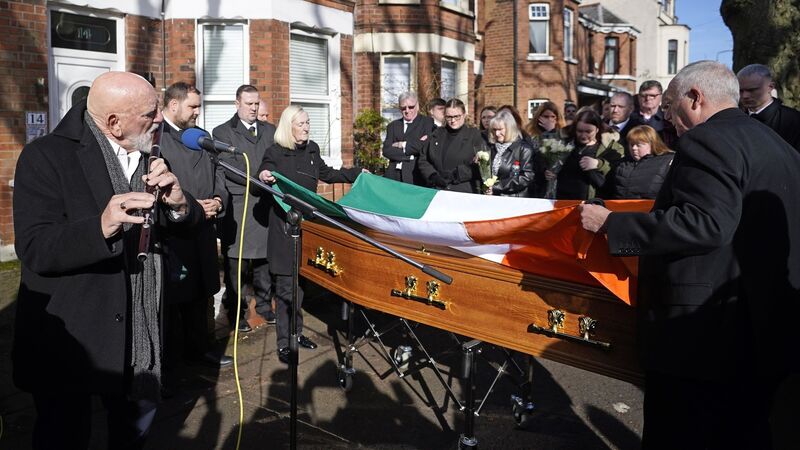Would-be taoiseach Mary Lou McDonald's lauding of IRA killer should give us all pause for thought

Matt Malloy of the Chieftains plays the flute as the flag is placed on the coffin of Brendan 'Bik' McFarlane as it leaves his family home on Cliftonville Road, Belfast, on Tuesday. Picture: Niall Carson/PA Wire
Joanne McDowell was 29 when she was having a drink in the Bayardo Bar on Aberdeen Street in Belfast.
A man walked in, threw a bomb and ran away. The bomb exploded killing Ms McDowell. Linda Boyle was pulled from the wreckage alive but she died of her injuries within a week. She was 17. They were murdered because they were Protestants.













